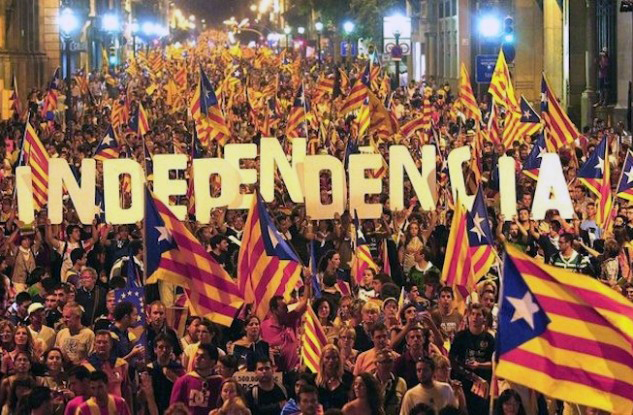VOTE IN CATALONIA
The local election of September 27 was turned into a sort of referendum for or against independence. The matters at stake, the guiding values

Catalonia’s election of September 27 draws near. On August 3rd Generalitat president Artur Mas, signed a decree establishing early elections for the regional parliament, which Mas turned into a referendum on Barcelona’s independence from Madrid. The coalitions running. Three main coalitions will be running in the 27 September election. These are: “Junts pel sì” (“United for Yes”), “Catalunya Sí que es Pot” (“Catalonia, we can”) and Ciutadans, the “Catalan” version of Ciudadanos. “Junts pel sì” is a coalition that brings together conservatives (like Mas) and pro-independence movements with clearly leftist positions. The purpose of this coalition is independence, regardless of the political differences of the parties that form it. “Catalunya Sí que es Pot” is a coalition that brings together left-wing parties, close to Podemos, the left wing “objector” party founded in 2014. “Catalunya Sí que es Pot” supports increased autonomy for Catalonia, but not its complete independence from Spain. The question of independence in Catalonia has been debated for years and a recent survey shows that Catalan citizens are equally divided between those in favour and those against independence. However, the Catalan electoral system is a proportional representative system and even without a majority vote “Junts pel sì” could obtain a majority in parliament (68 seats out of 135). Mas has already made known that – in his opinion – Parliament majority (even without a majority of votes) would suffice to work towards the “unilateral declaration of independence” of Catalonia, which he announced could be obtained in 18 months. It’s a complex issue that worries Madrid’s central government, afraid of the Country’s collapse. Also Brussels has warned Barcelona – as was the case past November at the time of the referendum on secession – that a claim for independence means exclusion from the EU. The bishops’ voice. Ahead of the election, the bishops of Catalonia issued a statement underlining that the next election could have “considerable historical relevance”, hence the decision to “contribute to the reflection of the citizens of Catalonia, with the light that comes from the Gospel of Jesus Christ, in the awareness that decisive issues at institutional, political and social level are at stake. In the democratic context we believe that also our voice, conveyed with a spirit of service, can enrich the ongoing debate on the present and the future of our Country”. The bishops underlined: “We convey our love for our Catalan homeland, that the Church has served from the very start, and our respect for the legitimate diversity of opinions that will be the object of the vote”. New challenges. “Over the past years – the prelates remarked – there have been new challenges and new aspirations that involve the concrete ways in which the people of Catalonia must organize themselves and how they intend to relate to their sister peoples of Spain, within the European scenario. It is not the job of the Church to propose a concrete option, however, we defend the moral legitimacy of all political choices based on the respect of the inalienable human dignity of people and peoples in their unceasing, unwavering quest for peace and justice”. The bishops underlined “the duty of all citizens to actively participate in the election in the exercise of their responsibility for the common good and much more at this crucial moment in time, that could have long-term consequences”. For this reason “it is necessary that everyone express their choices by casting their vote, bearing in mind the great values that must uphold society, such as the respect for the individual rights of persons, families and institutions, and honesty, and transparence in public management”. The bishops call for “a regeneration of politics, viewed from a wide horizon, that gives priority to justice, to the weaker brackets and to those who carry the burden of the economic crisis”. For a fairer society. The prelates of Catalonia highlighted the need to “continue promoting coexistence of Catalan society within a plurality of ideas, beliefs, choices and feelings, which means animating the construction of a democratic society based on solidarity, that is welcoming towards migrants, respectful of all sensitivities and aimed at the defense of freedoms”. It will also be necessary to “continue working to uproot the negative impact of the economic crisis; seeking ways to improve the situation of the many unemployed going through situations of restrictions, poverty, or marginalization”. “We pray to Our Lady of Montserrat, Patron Saint of Catalonia, to intercede for us so that our people may wisely discern between the various options and find the right avenues leading to the creation of a more just and fraternal future, open to and in solidarity with the realities of other world populations”.